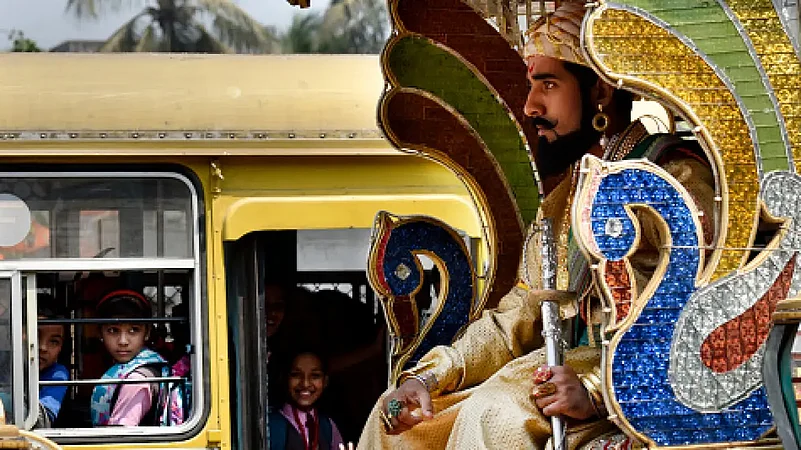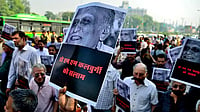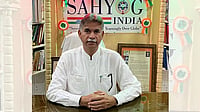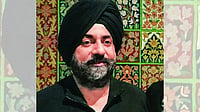'Taj Mahal is actually Tejo Mahalaya'
'Sardar Patel was opposed to Article 370'
'Hindu sage Bharadwaja wrote guidelines on making aircrafts'
'Nehru was a philanderer'
'Mahatma Gandhi asked Hindu women to cooperate with Muslim rapists'
These are examples of outlandish online claims and conspiracy theories have been debunked by several independent fact checkers and eminent historians. Still, the meta-narratives continue to be diligently peddled on social media as 'real history'. A sad reality about these mistruths, mostly forwarded through WhatsApp family and friends’ groups, is that they end up creating acrimony, says Shashi Lalit Kumar, a Delhi based IT professional. Such hateful messages and demeaning political jokes, she tells Outlook, have become a fodder for regular gossip among her extended family members as smart phones and data usage increased in the past few years in India.
Kumar, who belongs to UP’s Muzzaffarnagar district, recalls how during the recent state assembly election, her phone was flooded with messages on the Partition as Mohammad Ali Jinnah, the founder of Pakistan, became an election issue. “It became a favourite WhatsApp topic to forward messages that blamed a particular community for the Partition. Many of my relatives would forward such politically motivated messages without knowing their authenticity,” Kumar says, adding how political discussions triggered by such forwards would ending up in personal digs. “Two of my family members stopped talking to each other during elections. It's been four months now, they are yet to break the ice.”
With the rise of the majoritarian politics in the country, contesting, and invariably unsubstantiated, claims that challenge the “Marxist history” of India are being churned out regularly. Not long ago, fake Nostradamus passages were taken as facts by an influential section of mainstream media.
Given the political power and impact of social media, there has been a surge of scholarship across Facebook, Youtube, WhatsApp, Instagram and Twitter. Political participation in the digital space has triggered progressive movements like Arab Spring, Occupy Wall Street and the Green Revolution in Turkey. In India, the trend seems more confined to reinventing history for driving present-day politics. Social media has also been weaponised for attacking Bollywood and promoting propaganda movies on historical subjects.
Well before NCERT made some major changes in history textbooks, an online campaign was already building up. YouTube channel, Dharam Aur Moksha had a posted a video titled 'NCERT Insulting Real History Of India|NCERT Fake History | Why NCERT Is Showing Good Side Of Mughals'. Questioning the rationale behind “hiding real history” of the country, the young commentator reiterated the assertion, “India used to be Vishwa Guru (world leader).”
Also Read | History Must Be A Lesson Of Our Past Glory
Responding to the video dated January 24, 2022, a user wrote in the comment box: “We are neither taught correct history nor great books like Gita-Ramayana which helps in thinking, develop mind, and building a good character.” Another user wrote: “Books should not be secular. It should be clearly Hindu, Jain, Buddh, Sikh. We have right to at least have our kings and gurus in our history. We don't want invaders to be studied…”
Such video vloggers talk more like spin masters rather than trained historians. A case in point is a video posted by GetsetflyFLEARN titled, FAKE History in Textbooks Vs. Real History | Biggest Flaw in Indian Education System, adds to the cacophony around Mahatma Gandhi versus Bhagat Singh. The commentator lambasts historians like Bipin Chandra and shows Gandhi as a monster. The video dated March 11, already has 875,185 views.
Also Read | Revision Of History Textbooks A Political Agenda
Likewise, Do Politics, another YouTube channel, posted a video on July 10, 2021 titled, 'Fake History in NCERT Books: Will New Education Minister Change It?' which has got 108,409 views. The video description says, “School history books from NCERT are full of left propaganda, Hinduphobia, invader glorification and sings praises of English colonisers and Muslim rulers.” It discusses the “sinister agenda of the previous government that aimed to prepare future generations of Hindu kids to be cut off from their dharmic (religious) roots, be apologetic and submissive for being the victims of gross injustices in history.” The video justifies the caste system and dismisses patriarchy in Indian society.
“For over 50,000 years, India was at the pinnacle of human civilisation. But in the past 200 years, our history has been changed. Mughals became Indians and Indians became Kafirs. Akbar became a liberal and Shivaji became a fascist. Terrorists became Kashmiris and Kashmiris became migrants. Marxists became intellectuals and true intellectuals are being labelled as Andh Bhakts,” claims one video on Aikyam Hindutva, a YouTube channel that in its description claims, “For 200 years, we were taught false history, save Hindutva.” The video dated March 5, 2020, has got 1,180,360 views to date and the channel has 1.19M followers.
Interestingly, while drawing a contrast between Marxist and true intellectuals the video shows the pictures of Arundhati Roy and Rajiv Malhotra, who claimed to know the ancient Indian way of transferring wealth across births and propounded the idea of smart investing in next birth during a TV discussion with controversial self-proclaimed ‘godman’ Swami Nithyananda. While Malhotra was appointed honorary professor at JNU's Centre for Media Studies in November 2018, Nithyananda fled India in 2019 amid allegations of rape and sexual abuse.

Gita Sahgal, a documentary film-maker and writer, underscores growth of the Ramjanmabhoomi movement into the meta-narrative of contemporary Hindutva. In an essay titled, Hindutva Past and Present: From Secular Democracy to Hindu Rashtra, which outlines the beginnings of Hindutva—a political movement aimed at establishing rule by the Hindu majority, she writes, “The Ramjanmabhoomi movement created a grand narrative—mythifying history and historicising myth. To do this, the figure of Ram had to descend from myth to history and the legend of his birth had to be celebrated at a particular site where a mosque had been built.”
Sahana Udupa, a Professor of Media Anthropology at Ludwig Maximilian University (LMU), Munich, Germany, has delineated ‘Enterprise Hindutva’ as a mediatised form of Hindu nationalism, shaped largely by the affordances of social media and the cultural practices surrounding them in urban India.
Social media discourse in India today, says Udupa, represents an increasingly important strand of the diffused logics of Hindutva, emerging within and shaping a constellation of political practices and aspirations. “The continued salience of Hindu nationalism in new millennium India presents the paradox of transnational internet media technologies aiding a staunchly chauvinistic nationalist ideology,” Udupa writes in a paper titled, ‘Enterprise Hindutva and social media in urban India’. She further asserts that “Enterprise Hindutva assembles a variety of motivations and dispersed actors, allowing contradictions to flourish. Indeed, it is precisely by allowing arguments and contradictions around repetitive simplified summaries that enterprise Hindutva finds its conditions for renewal.”
As Gurmehar Kaur, an independent journalist and vlogger, points out, “The WhatsApp University has led to a deepening of anti-intellectual impulses. People like me, who in their own modest way present a counter-Hindutva perspective are usually chided, shunned or ridiculed in extended family circles and on social media. Alternative views are expressed on WhatsApp, but they get subsumed in the avalanche of paid news and made-to-go viral content. We will need to think of more creative ways to communicate the message of humanism,” says Kaur, who has been campaigning against the right-wing online hate ecosystem, adding, “Our response must always be strong, spirited, witty and robust.”
As social media is becoming the primary source of students’ literacy, experts have already pointed out a serious gap in the National Education Policy 2020, which they say has neglected social media literacy entirely. Also, there is a growing demand for bringing a comprehensive transparency law to compel relevant disclosures by social media platforms.
Free speech absolutists, however, lay more emphasis on educational approach in India as they see governance of speech fraught with risks under State purview. “Just like the government issues weather advisories, it can do the same when it comes to major fake stories or rumours doing rounds on social media. It can be done in an apolitical fashion. Radio is an effective medium and can be used for this purpose,” Pratik Sinha, co-founder of Alt News, a web platform dedicated to verifying and debunking the scourge of fake news in circulation, had said during an interaction with this reporter. He further stressed, “Unless the mainstream media dutifully performs its job of educating and informing the people and the government takes constructive measures, fake news propaganda cannot be checked.”


























